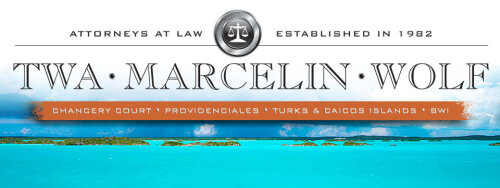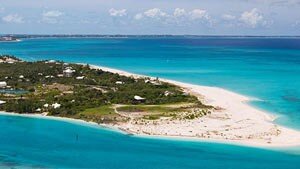Best Public-Private Partnerships (PPP) Lawyers in Providenciales
Share your needs with us, get contacted by law firms.
Free. Takes 2 min.
List of the best lawyers in Providenciales, Turks and Caicos Islands
About Public-Private Partnerships (PPP) Law in Providenciales, Turks and Caicos Islands
Public-Private Partnerships, commonly known as PPPs, are long-term cooperative arrangements between government entities and private companies. In Providenciales and the wider Turks and Caicos Islands, PPPs are increasingly used to finance, construct, and operate critical infrastructure such as airports, roads, energy projects, water supply, and health facilities. These collaborations aim to utilize the strengths and resources of both sectors to deliver public services more efficiently and effectively.
PPP law in Turks and Caicos Islands provides the legal and procedural framework for these partnerships. Typically, the government identifies a public need and partners with private organizations to deliver solutions. Legal provisions are designed to ensure transparency, protect public interests, and define the roles and responsibilities of each party.
Why You May Need a Lawyer
There are several scenarios where legal advice is essential when dealing with PPPs in Providenciales:
- Evaluating or responding to government tenders for PPP projects
- Negotiating PPP agreements or contracts
- Ensuring regulatory compliance and fulfillment of statutory obligations
- Structuring special purpose vehicles or consortiums for project delivery
- Addressing disputes or renegotiating contract terms
- Navigating land acquisition, financing, and risk allocation
- Handling changes in project scope or unexpected legal developments
- Managing public procurement challenges or transparency requirements
Given the complexity and long-term nature of PPP arrangements, engaging a qualified lawyer helps safeguard interests, minimize risks, and promote project success for both public and private sector partners.
Local Laws Overview
Public-Private Partnerships in Providenciales are primarily governed by a combination of the Turks and Caicos Islands statutes, local regulations, and established best practices. While there is no standalone PPP Act as of 2024, the following legal aspects are especially relevant:
- Public Procurement Ordinance: Governs the procedures for procuring goods, services, and infrastructure from the private sector to ensure fair competition and transparency.
- Government Contracting Procedures: Set out requirements for entering into long-term agreements, including due diligence and approval from government authorities.
- Land Law: Addresses acquisition, leasing, and transfer issues that often arise in PPP projects.
- Environmental and Planning Regulations: Stipulate environmental impact assessments and planning approvals.
- Investment and Taxation Regulations: Affect the structure and economics of PPPs, including incentives and exemptions available to private partners.
It is crucial that both public and private parties understand these local laws and seek legal guidance to ensure compliance throughout all project phases.
Frequently Asked Questions
What is a Public-Private Partnership (PPP)?
A PPP is a cooperative contract between a public sector authority and a private sector entity to finance, build, and operate projects or services that serve the public.
Are there specific PPP laws in Providenciales?
While there is no exclusive PPP Act, PPPs are regulated through existing procurement, contracting, land, and investment laws in the Turks and Caicos Islands.
What kinds of projects are typically delivered through PPPs?
Projects often include infrastructure such as roads, airports, energy facilities, water supply, health, and educational buildings.
Who initiates a PPP in Providenciales?
PPPs are often initiated by government agencies that identify a public need and invite private sector participation through tenders or direct negotiation.
How does the government select private partners?
Partners are usually selected through competitive bidding under public procurement rules to ensure fairness and value for money.
What are the main risks in PPP projects?
Risks include financial issues, construction delays, regulatory changes, and disputes between partners. Proper legal structuring helps manage these risks.
Does a private partner own the project?
Ownership varies by agreement. In some PPPs, the private partner operates the asset temporarily and then transfers it to the government. In others, shared ownership may exist.
Are PPP projects subject to local taxation?
Yes, unless specified exemptions are provided. Tax treatment can significantly affect project viability and should be reviewed with legal counsel.
What happens if there is a dispute in a PPP?
Most PPP agreements set out dispute resolution procedures, often involving negotiation, mediation, or arbitration.
Why is legal due diligence important in PPPs?
Legal due diligence checks for compliance, uncovers hidden risks, and ensures all statutory and contractual obligations will be met during the project lifecycle.
Additional Resources
Here are some key resources and organizations relevant to PPPs in Providenciales, Turks and Caicos Islands:
- Turks and Caicos Islands Government: Consult their procurement or contracts division for official guidelines and opportunities.
- Attorney General’s Chambers: Provides legal oversight on government contracts and legislation interpretation.
- Turks and Caicos Islands Bar Association: For referrals to licensed attorneys specializing in PPP and infrastructure law.
- Planning Department: For regulations relating to land use, environment, and development approvals.
- Invest Turks and Caicos Agency: For information on investment incentives and project support.
Next Steps
If you are considering entering a Public-Private Partnership in Providenciales or are facing a legal issue involving a PPP, it is important to take the following steps:
- Gather all relevant documents and information about your prospective or ongoing PPP project.
- Contact a qualified local lawyer who has experience with PPPs, public procurement, and related fields.
- Discuss your objectives, risks, and any concerns you have about compliance, financing, or partnership arrangements.
- Work with your lawyer to review agreements, negotiate terms, and ensure all legal obligations are clearly understood by all parties.
- Stay engaged throughout the project lifecycle, seeking legal advice when there are changes to project scope, regulations, or partnership arrangements.
For anyone new to PPPs or unfamiliar with local legal requirements, working closely with a legal expert is the best way to protect your interests and help ensure the success of your partnership in Providenciales.
Lawzana helps you find the best lawyers and law firms in Providenciales through a curated and pre-screened list of qualified legal professionals. Our platform offers rankings and detailed profiles of attorneys and law firms, allowing you to compare based on practice areas, including Public-Private Partnerships (PPP), experience, and client feedback.
Each profile includes a description of the firm's areas of practice, client reviews, team members and partners, year of establishment, spoken languages, office locations, contact information, social media presence, and any published articles or resources. Most firms on our platform speak English and are experienced in both local and international legal matters.
Get a quote from top-rated law firms in Providenciales, Turks and Caicos Islands — quickly, securely, and without unnecessary hassle.
Disclaimer:
The information provided on this page is for general informational purposes only and does not constitute legal advice. While we strive to ensure the accuracy and relevance of the content, legal information may change over time, and interpretations of the law can vary. You should always consult with a qualified legal professional for advice specific to your situation.
We disclaim all liability for actions taken or not taken based on the content of this page. If you believe any information is incorrect or outdated, please contact us, and we will review and update it where appropriate.









